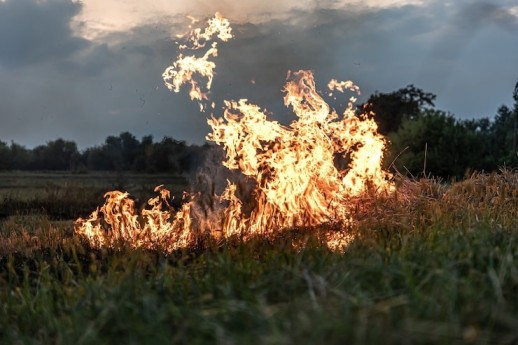India–US Trade Tensions Rise Over Steel and Auto Tariffs NMDC Limited reports a 38% drop in Q4 FY24 consolidated net profit RINL to Raise $23 Million Through Land Sales Amid Crisis

The Yogi government in Uttar Pradesh is preparing to use stubble as a source of compressed natural gas, or CNG. The state government thinks that many individuals will benefit from both work and money from this initiative. In addition to promoting green energy and improving health outcomes, this endeavor will result in the production of pure organic fertiliser.
Chief Minister Yogi Adityanath released the Bio-Energy Policy 2022 to promote biofuel in UP and encourage large-scale investment in the sector. Many big investors had signed MoUs with the state government during the Global Investors Summit in this regard. The Yogi government has set a target to establish biogas plants in every tehsil, some of which will soon become operational.
One of the upcoming operational plants is Buland Biogas in Bulandshahr, situated in the Village Lohgara Tehsil and District Bulandshahr. Chairman Buland Biogas Ather Mehmood had signed an MoU worth ₹18.75 crore with the state government, the cost of which has now increased to ₹21 crore.
This plant will commence production in April 2024 and is projected to yield 3 tonnes of CNG per day. This production will contribute to reducing the state's dependence on petrol and diesel. Additionally, this initiative is expected to generate employment opportunities for 80 to 100 people, including both skilled and unskilled workers.
Athar Mehmood, Chairman of Buland Bio Gas, said that the plant produces not only straw but also degradable waste like straw, cow dung, chaff, sugarcane waste, municipal waste or a mixture of all the gases. With the help of this technology, CNG is purified. The license for this plant has been obtained from Indian Oil.
He said that the most noteworthy aspect of this project is the bulk production of organic fertiliser. All the waste generated during the compressed gas production process is 100% organic, consisting of both solid and liquid components.
The liquid organic fertiliser produced by the plant will be distributed free of cost to farmers for a period of three years, with the identification of eligible farmers being the responsibility of the District Magistrate or CDO. This initiative aims to assist farmers who may face difficulties in purchasing fertilisers such as DAP and urea.
Also Read : India aims to halt thermal coal imports by 2026, encourages switch to domestic sources FY'24 asset monetisation falls short of target at ₹1.50 lakh cr